Discover Stansberry Investor Hour
Stansberry Investor Hour

Stansberry Investor Hour
Author: Stansberry Research
Subscribed: 1,177Played: 70,507Subscribe
Share
© Stansberry Research
Description
From financial markets and politics to business and social issues, Dan Ferris and our Stansberry Analysts offer candid discussion on today's most important headlines. Each week you'll hear exclusive interviews with guest investment experts, authors, and top thinkers such as Jim Rogers, Kevin O'Leary, Glenn Beck, PJ O'Rourke, and Jim Grant.
The Stansberry Investor Hour is produced by Stansberry Research, LLC.
The Stansberry Investor Hour is produced by Stansberry Research, LLC.
356 Episodes
Reverse
On this week's Stansberry Investor Hour, Dan and Corey welcome Adrian Fenty to the show. Adrian is the founding managing partner of MaC Venture Capital, an early-stage venture-capital ("VC") firm investing in visionary founders. Before breaking into VC, Adrian was the mayor of Washington, D.C. from 2007 to 2011. Adrian kicks off the show by discussing how he transitioned from politics to VC, starting with investing in education-technology companies and working at established firm Andreessen Horowitz. As he explains, VC is still the Wild West of investing, so he searches to find "technical" founders with big ideas. Adrian also covers which sorts of companies MaC is invested in right now and how he helps them grow. (0:00) Next, Adrian talks about AI investing in the VC space – what conversations are happening and how companies are keeping up in this new and rapidly evolving ecosystem. He says that the U.S. is "building the future through technology," and it's drawing talent from all over the world. Adrian then discusses why he doesn't encourage early exits, the pattern of larger companies "acqui-hiring" AI engineers and founders from smaller companies, and how he finds promising startups to invest in. (17:26) Finally, Adrian talks politics. Once D.C.'s youngest mayor, he shares his thoughts on city governments and politicians not doing enough for their people, especially in terms of trying to reduce crime. His solution for this problem involves putting someone ambitious and qualified in charge of the efforts. Adrian says that, similar to management at successful companies, city officials need to tackle problems head on and not let them fester. He then finishes with a discussion about Americans "letting politicians off too easy," gives his opinion on the upcoming New York City mayoral election, and argues that the government needs to be held to higher standards. (35:20)
On this week's Stansberry Investor Hour, Dan and Corey are joined by their colleague Gabe Marshank. Gabe is the editor of the new Market Maven newsletter, an advisory focused on asymmetric risk-versus-reward opportunities in the stock market. He's also senior analyst on Stansberry's Investment Advisory and Commodity Supercycles. Gabe kicks things off by describing how he got his start in finance, including discovering the world of hedge funds and working for investing legends Leon Cooperman, Steve Cohen, and David Einhorn. He shares what he learned from each investor and how those lessons have affected his current strategy. Gabe also discusses how today's financial world has changed since the 20th century, why the idea of value investing from Benjamin Graham's era is outdated, bankruptcy being capitalism's greatest tool, and what the dot-com boom tells us about future AI success stories. (0:00) Next, Gabe dives deep on Apple. He says the company has bungled its lead on agentic AI in phones, similar to how IBM fumbled its lead with PCs. As he points out, most of the top 10 stocks in the S&P 500 Index change each decade. So he's looking forward to finding what companies could replace today's big dogs. This leads Gabe to critique Microsoft and Amazon Web Services as "at risk," advise listeners not to worry about a potential AI market crash, and explain why he's looking outside of tech for opportunities today. (21:28) Finally, Gabe says consumer discretionary would be a good sector to investigate for future winners, as it's likely to benefit from AI transformations. He emphasizes that AI does not just mean chatbots and large language models – it's machine learning, too. Industries like onshore oil drilling have been using that technology already to improve their efficiency. Gabe then closes the show out with a conversation about copper prices and the commodity industry as a whole. (38:18)
On this week's Stansberry Investor Hour, Dan and Corey are joined by Eric Fry. Eric is the editor of multiple newsletters at our corporate affiliate InvestorPlace, including Fry's Investment Report and The Speculator. Eric kicks off the show by discussing his time working alongside legendary financial publisher Jim Grant and his top-down approach to investing. His strategy involves finding industry leaders that have fallen on hard times but still have favorable underlying dynamics. Eric says that with this method, he has collected 100%-plus gains in the past few years in companies like Amazon and Corning. He also talks about investing in foreign stocks, the unbalanced risk in microcaps that many investors don't consider, and three industries he stays away from. (0:00) Next, Eric shares his time horizon for investing, whether he recommends adding to existing winners, his past experience with bitcoin, and the advice he gives his subscribers on position sizing and risk management. He notes that investors will often overstate their risk tolerance and understate their investment goals, which can cause problems. This leads to a conversation about the advantages of long-dated options versus short-term options. (20:39) Finally, Eric breaks the world of AI investment down into four groups: builders, enablers, appliers, and survivors. He says most of his current investment ideas are focused on the survivor category – and he names three such stocks he likes today. This includes a for-profit thrift-store chain, an English beverage company with rising U.S. sales, and an international food-delivery company that just became profitable. (40:03)
On this week's Stansberry Investor Hour, Dan and Corey welcome their colleague Whitney Tilson back to the show. Whitney is the editor of multiple newsletters at Stansberry Research, including our flagship Stansberry's Investment Advisory, Commodity Supercycles, and the free Whitney Tilson's Daily. Whitney kicks things off by discussing how he became a "make money" investor, his simple method for picking winning stocks, and a few lessons he has learned from decades in the market. He advises listeners to let their winners run and to hold them for a long period of time, as that's the only way to outperform index funds. Whitney also shares the story of missing out on Netflix's 100-bagger gains, makes a bullish case for Salesforce, and gives his thoughts on particular players in the AI space, such as Palantir Technologies. (0:00) Next, Whitney talks about the cannabis stock bubble, scam Chinese stocks, and why he's "pounding the table" on Alphabet and Meta Platforms. Using Adobe as an example, he tells listeners to start considering how AI will affect existing businesses and their share prices, especially if it's in negative ways. Plus, he goes in depth on index funds – their benefits, how his strategy has shifted to include market-cap-neutral funds, and which funds he likes today. (22:28) Finally, Whitney explains the power of compounding and discusses the opportunity today in clothing maker Lululemon. Despite "really struggling with" the stock, he believes it could be a big winner down the line. The secret, Whitney says, is finding good companies with headwinds that knock the stock way down but that are temporary. And to close the show out, Whitney covers the pitfalls of short selling, why you should never bet against companies that make products people love, and his most speculative stock idea today. (41:59)
On this week's Stansberry Investor Hour, Dan and Corey are joined by Kevin Duffy. Kevin is the founder and editor of The Coffee Can Portfolio newsletter. He's also co-founder and principal of the investment-management firm Bearing Asset Management. Kevin kicks off the show by talking about The Coffee Can Portfolio, the investors who have inspired his work, and his outlook on some long-term secular trends, including fiat currencies. He explains that most trends today harken back to the American Revolution, as that was when centralization really began in the U.S. Kevin walks listeners through several key points in history that got us to where we are today. Plus, he explores the false beliefs of the dot-com boom, the market's current euphoria around AI, and the obvious threat to Nvidia that many investors are overlooking. (0:42) Next, Kevin dives deep on China. He discusses what he has learned by studying the country's stock market, why he's bullish on Chinese stocks, and the 50% discount that these stocks offer. Using Japan as an example, Kevin advises listeners to always question the popular economic narrative, as it can be completely wrong, especially at the end of major manias. He says the biggest culprits behind China's negative narrative today are the U.S. government and misplaced anger over worsening living standards. (18:45) Finally, Kevin talks about the flaws in modern economics and financial logic, the importance of educating oneself on economics and learning from past mistakes, and the future consequences of the U.S. isolating itself while the rest of the world comes together. He says there are still some stock opportunities in the U.S., but the best opportunities are in Asia. (37:14)
On this week's Stansberry Investor Hour, Dan and Corey welcome Marc Chaikin back to the show. Marc is the founder of our corporate affiliate Chaikin Analytics and a market veteran of more than 50 years. Marc kicks off the show by explaining why he's bullish through the first quarter of next year, the implications behind a Federal Reserve rate-cutting cycle, the opportunity today in homebuilders and biotech, and what's happening in the bond market with the "bond vigilantes." He breaks down the three factors driving the market right now and lists a few "less obvious" sectors and companies that are benefiting from these factors. (1:04) Next, Marc discusses his Power Gauge system and how it gives you an inside look into what folks on Wall Street are doing. After, he delves into how the current AI boom resembles the dot-com boom, a "mini bubble in the making" for data-management company Oracle, and China being behind gold's soaring price. Using the Power Gauge in real time, Marc gives listeners several gold-mining and construction stocks that are rated bullish by his system. (18:31) Finally, Marc reminds listeners that small caps were the real winners when the dot-com bubble burst, so that could happen again when the AI bubble inevitably bursts. This leads to a conversation about the late investment adviser Marty Zweig and his timeless advice for investors. Then, to close the show out, Marc speaks about the significance of this leg of the bull market being fueled by capital spending rather than customers... millennials investing in stocks... and fundamentals not mattering for younger investors. (36:39)
On this week's Stansberry Investor Hour, Dan and Corey welcome Edwin Dorsey back to the show. Edwin is the founder and editor of The Bear Cave newsletter, in which he conducts deep, investigative analyses of public companies for his 80,000-plus subscribers. Edwin kicks things off by discussing The Bear Cave and his extensive work exposing corporate misconduct. He says, currently, his favorite companies to find for shorting purposes are those that are going to be hurt by technological innovations. Edwin gives education-support company Chegg as one example of a business that has already been disrupted by AI and has been employing questionable cancellation practices. And he discusses the growing market for lab-grown diamonds and how that will harm traditional retailers such as Signet Jewelers. (1:22) Next, Edwin talks about QMMM, a U.S.-listed Chinese company whose stock is being manipulated by overseas groups. He goes in depth on the manipulation tactics these groups use on social media to pump and dump shares of unprofitable companies, why it's so difficult to pinpoint the scammers and investors running this dark network, the investigative research he's doing to stay up to date on the scams, and how crowdsourcing from the community has helped increase awareness. (18:33) Finally, Edwin warns listeners that the overseas scammers will often engage in after-hours market manipulation, so the best time to short the companies is intraday. He further advises listeners not to take large positions because there is so much volatility in these scam companies. This leads to a conversation about why Edwin has never criticized electric-vehicle maker Tesla in his newsletter, the legendary saga of Netflix ex-CEO Reed Hastings responding publicly to short seller Whitney Tilson, and which sectors Edwin believes will be hardest hit by AI. (36:49)
On this week's Stansberry Investor Hour, Dan and Corey welcome Joel Litman back to the show. Joel is the founder and chief investment officer of our corporate affiliate Altimetry, where his team uses their Uniform Accounting system to look beyond the as-reported numbers in financial reports to see how companies are really performing. Joel kicks things off by discussing the resilience of the U.S. stock market, which has takenmany professional investors by surprise. He states that historically, tariffs have not been a tax on consumers, with exporters absorbing 50% to 60% of costs to maintain their market share. Joel also argues that the U.S. dollar continues to be strong and that despite recession woes, corporate credit shows the economy is persistent. (0:00) Next, Joel urges folks not to give in to the "fear of getting in" (the counterpart to the "fear of missing out"). Because investors are seeing new highs, they think they've missed out on buying in, but Joel says that's a mistake. Joel also shares his thoughts on the usage of AI and how many concerns over it replacing the entire workforce are unwarranted. Additionally, he says that the investment advice it provides is often incorrect and that is should be used as a supplement to research instead. (26:36) Finally, Joel reflects along with Dan and Corey on Nobel Prize-winning economist Eugene Fama and the scope of his knowledge. Joel also provides a brief explanation of what he and his team look for at Altimetry. And he provides a glimpse of some of his latest research.(45:41)
On this week's Stansberry Investor Hour, Dan and Corey welcome Chris Irons to the show. Chris started writing about finance back in 2013 under the moniker Quoth the Raven and was a speaker at the 2019 Stansberry Conference. Chris kicks things off by addressing tariffs and shares how nominal prices will continue to rise regardless of what we do. He says the cycle of crashes and money-printing has continued to accelerate and create bigger distortions and drops. And he discusses passive bids that pile into the S&P 500 Index and cause valuations to become stretched. He warns against overexposure to the fund due to potential drawdowns in any of the "Magnificent Seven" that could take the index down with them. (0:00) Next, Chris states that the market has gone "all in" on options instead of equities, creating a state of leveraged gambling. And he predicts that things have changed so much that despite the beliefs that there will continue to be government bailouts or other solutions, this cannot continue. Something will break eventually. However, it's not all doom and gloom. Chris says you just have to find where there's good value. (24:06) Finally, Chris shares advice on how to hedge any large market crashes based on his own strategies. He also cautions against buying into assets in blind hope of reaching a bottom. If a company is burning money without generating any cash, there won't be a bottom to bounce off of. (42:19)
On this week's Stansberry Investor Hour, Dan welcomes Joe Boskovich to the show. Joe is the founder of Old West Investment Management, an investment firm focused on finding high-quality companies with deep value. Joe kicks things off by sharing his background in company management. He states that he uses his past experience to evaluate how the companies he considers investing in are being run. Examining the steps management takes and how they behave will reflect their long-term goals with the company and if the correct actions are being taken to help the company succeed. And Joe says one of the easiest ways to gain insight is by seeing how they're being paid. (0:00) Next, John compares the differences between deep-value companies and distressed companies, showing how one that might appear to be "junk" might have potential if it's run well. And while folks love the big tech companies, most don't think about the metals that are needed in the products that they manufacture, which are where the bigger opportunities lie. (20:41) Finally, Joe and Dan talk about company scale and how companies should handle expanding locations. And Joe mentions how stock picking has become "a lost art" due to investors putting their money into indexes and exchange-traded funds. He shares several companies in the homebuilding sector that have caught his attention. And he warns about selling your stocks too soon. Joe views his investing as a "partnership" with the companies that he wants to own in the long run. (41:05)
On this week's Stansberry Investor Hour, Dan welcomes value investor Tobias Carlisle back to the show. Tobias is the founder and portfolio manager of Acquirers Funds, a deep-value investment firm. He's also an author and host of the Acquirers Podcast. Tobias kicks things off by discussing the "happy hunting ground" in small-cap stocks, the market narrowing in the S&P 500 Index, and the massive amounts of capital flowing into AI. He also compares the AI mania today with the dot-com boom of the late '90s, questions how AI is making money, and notes that the bottom 490 stocks in the S&P 500 have been in a "little recession" since 2022. He says this gives value investors an opportunity right now to get great names for cheap before the inevitable rebound. After that, Tobias comments on passive investing, what could be in store for the top 10 large caps, and why fears of AI destroying the jobs market are overblown. (0:00) Next, Tobias talks about his company's two funds: the Acquirers Fund (ZIG) and Acquirers Small and Micro Deep Value Fund (DEEP). He explains what he looks for when picking stocks and how he determines valuations. He also name-drops many stocks and industries that he thinks have fantastic potential over the next decade. (21:01) Finally, Tobias discusses the significance of hedge-fund shorts of the small-cap Russell 2000 Index peaking recently, plus the extreme concentration of the top 10 stocks. He notes that Nvidia now accounts for 8% of the S&P 500's market cap – the highest in history. Tobias says that valuations will eventually come back down to Earth and that not all of the Mag Seven will be top performers in the future. Citing Tesla as the weakest in the group, he points out that Chinese electric vehicles beat Tesla cars in terms of price, design, and charging times. Tobias then closes things out with a conversation about an "echo boom" of 2021, cryptocurrencies being back in favor, and the unprecedented outperformance of large caps. (37:31)
On this week's Stansberry Investor Hour, Dan and Corey welcome J.C. Parets to the show. J.C. is a Chartered Market Technician and editor of the Everybody's Wrong newsletter. He's also the founder of All Star Charts – a research platform for both professional and retail investors which tracks U.S. and international stocks, interest rates, commodities, and foreign exchange markets. J.C. kicks things off by discussing the difference between market technicians and "chartists," the fact that valuations and fundamentals no longer drive stock prices, and the "big bullies" that trickle down to the individual stock level and move markets. He delves into the topic of positioning and finding parts of the market where folks are too bullish or too bearish. For example, J.C. points out that small caps are currently vulnerable for a squeeze. After that, he gives listeners the "cheat code" for analyzing the market, including what to look for, how to cut through the "noise machine" of financial media, how to spot changes in trends, and how to distinguish reality from narrative. (0:35) Next, J.C. walks through a hypothetical trade in the small-cap Russell 2000 Index to demonstrate his thought process and how exactly he finds opportunities. He highlights relative strength, waiting for a change in trend, weighing risk versus reward, not taking profits too early, and his unique position-sizing strategy. J.C. also emphasizes the importance of continually asking yourself how you could be wrong once you've formulated a thesis. As he says, if you can't answer the question and don't know how the market could prove your thesis wrong, "It's not an investment. It's a religion [based on belief alone]." This leads J.C. to talk about overcoming human emotion, having a plan before entering a trade, and taking advantage of all the emotional investors who don't have a plan. (19:48) Finally, J.C. throws out a few areas of the market he likes today and is following closely for opportunities, explains how he decides the right time to enter and add to a trade, and gives listeners solid advice for risk management. "If you're in a trade that's losing, you're going to be distracted, and you're going to miss the giant elephant that's walking right past you," J.C. quips. And he closes the show out with a conversation about investing discipline, including not entering risky trades even if you know they'll go up. (37:21)
On this week's Stansberry Investor Hour, Dan and Corey welcome Eugene Fama to the show. Eugene is a Nobel Prize-winning economist and widely recognized as the "father of modern finance." Eugene kicks things off by talking a bit about his efficient-market hypothesis, whether he believes it's still relevant in today's economy, and how passive investing plays a role in all this. He also discusses what it's like winning a Nobel Prize, the impact of his five-factor model on investing and the rise of factor-based funds, rationality versus irrationality, and the importance of luck in markets. (0:34) Next, Eugene argues against a New York Times article claiming that a PhD in economics won't bring affluence or prestige anymore, laments the lack of new breakthroughs in financial theory/modeling, and comments on the modern competitive environment in economics that didn't exist 60 years ago. Things then take a more personal turn, and Eugene talks about his how he discovered his love of economics and what he wanted to focus his research on. (16:28) Finally, Eugene shares what it was like in Chicago back when the city was the epicenter of financial research, including his experience working with some other notable economists. After that, he gives his opinion on market bubbles. Speaking about the dot-com era, he says that the total value created from the industry is a big part of international wealth today, so it can't be considered a mistake. And he closes things out with a conversation about uncertainty in making predictions. (30:34)
On this week's Stansberry Investor Hour, Dan and Corey welcome Dr. David "Doc" Eifrig back to the show. Doc is the new permanent CEO of Stansberry Research's parent company MarketWise, as well as the editor of five newsletters at Stansberry and a member of the Investment Committee for Stansberry Portfolio Solutions. Doc kicks off the show by asking Dan about his recent river cruise vacation on the Mississippi River and sharing stories about his own trip to Lisbon, Portugal a few weeks ago. This leads to a conversation about Doc and Dan's first meeting in 2007 and how Dan was a "diligence check" for Doc joining Stansberry in the first place. Doc also talks about his permanent appointment as MarketWise CEO after almost a year holding the interim role. (0:46) Next, Doc discusses the financial-newsletter industry and what sets Stansberry apart in this era where anyone can self-publish content – including free content and AI-generated content. "I want us to be known as a trusted source," he notes. As Doc emphasizes, Stansberry is good at finding talented analysts who work hard, know their stuff, and can meet deadlines. He also looks back on the company since its "disaster" going public, previous leadership that didn't respect the company's history, and what has mattered most to him since becoming CEO. (23:57) Finally, Doc explains that caring about what you're doing and the experience you want to give is the most important thing in business. He gives shout-outs to several folks at MarketWise who are doing just this, from Stansberry's Executive Editor Carli Flippen overseeing everything that gets published, to the marketing team and copywriters who care about the customers more than making a sale. (45:32)
On this week's Stansberry Investor Hour, Dan and Corey welcome Joe Milam to the show. Joe is the founder and CEO of AngelSpan, which provides investor relations for early-stage startups. He's also the founder of The Legacy Funds and managing member of the Texas Legacy Fund. Joe kicks things off by recounting his background in finance and the "Forrest Gump-like experiences" that got him to where he is today. He critiques the venture-capital ("VC") world, as it requires no training or certification to enter. Joe explains that his mission is to bring professional standards and practices to early-stage VC. And he shares a few anecdotes of unprofessionalism in the VC world that you'll never hear reported by the media, including investing for access to a private jet. (0:47) Next, Joe discusses the massive opportunity in bringing professional processes to VC, especially because entrepreneurship is growing, yet the financial infrastructure has not been modernized to accommodate for this growth. He also talks about lack of diversification being a problem, the history of angel investing since the Revolutionary War, the role hype plays in VC, why he believes we're at the top of the "hype cycle" for AI, and the unintended consequences of technological innovation. (19:19) Finally, Joe points out that an understanding of financial history is directly linked to proper risk assessment and management. He notes that many folks will ignore risk even if they're warned about it, due to a lack of discipline and their fear of missing out on the next hottest thing. As Joe explains, there's an expanding pool of innovation and places to put money, so both VC and individual investors need to manage risk. (45:48)
On this week's Stansberry Investor Hour, Corey welcomes his colleague Brett Eversole back to the show. Brett is the editor of the True Wealth, True Wealth Systems, and DailyWealth newsletters. He also serves on the Investment Committee for Stansberry Portfolio Solutions. Brett kicks things off by sharing what he learned from his mentor Steve Sjuggerud, including the investment philosophy of buying assets that are "cheap, hated, and in an uptrend." He examines the recent tariff drama and why he believes we're about to return to a boring market fueled by fundamentals after several months of turbulence. As Brett explains, a lot of it has to do with increased capital spending from hyperscalers. (0:46) Next, Brett reviews the difference between secular bull markets and cyclical bull markets. He compares today's bull market (driven by AI) with the bull market of the late '90s (driven by the Internet), noting that a massive infrastructure buildout caused both. Brett predicts a normal market for the next few years, followed by a dot-com-style AI boom and then a "lost decade." He also discusses the S&P 500 Index decoupling from the U.S. economy, tariffs hurting smaller companies, and why he's bullish on gold and silver. (14:59) Finally, Brett talks about indicators that investors can use to gauge the market's underlying health, as well as what divergence between the indicators can mean in both the short and long term. He then dives into his work on Stansberry Portfolio Solutions, including the strategy the team uses to find the best companies and how to manage risk. And he closes things out with an in-depth analysis of today's real estate market. (33:29)
On this week's Stansberry Investor Hour, Dan and Corey are joined by Nick Maggiulli. Nick is the chief operating officer of Ritholtz Wealth Management and founder of the financial blog Of Dollars and Data. His new book, The Wealth Ladder, comes out next week. Nick kicks off the show by discussing The Wealth Ladder, including the six different levels of wealth and why income is a more crucial factor to building wealth than behavior. He also talks about jobs that will be a safe haven once artificial intelligence ("AI") becomes more prevalent, the mistakes people make when buying income-producing assets, the importance of diversification, and why he prefers to invest in index funds. (0:40) Next, Nick goes in depth on the spending mistakes people make that prevent them from moving up to a higher wealth level. He touches on diversification again, using Elon Musk versus Bill Gates as an example. Plus, he covers the different strategies for different wealth levels, why it's important to still focus on the nonfinancial things in life, statistical data for whether money can buy happiness, and the significance of money being a quantifiable thing. (17:27) Finally, Nick discusses the things that financially successful people may be overlooking, why the strategy for success may vary on a case-by-case basis, and the different levels of spending freedom. He says that level two allows freedom in the grocery store, level three allows freedom at restaurants, and level four allows freedom for traveling. And he shares a handy formula for people to use when it comes to nonessential spending. (35:15)
On this week's Stansberry Investor Hour, Dan and Corey welcome their colleague Alan Gula back to the show. Alan is an editor and member of the Investment Committee for The Total Portfolio and Stansberry's Forever Portfolio, as well as a senior analyst for flagship newsletter Stansberry's Investment Advisory. Alan kicks off the show by analyzing a chart of the S&P 500 Index since 1957. He notes that the index is running 35% above its long-term trend, which is high but not a historic extreme. Focusing on just the past 15 years, Alan discusses the current secular bull market and whether artificial intelligence ("AI") could usher in a dot-com-style boom. He also goes in depth on The Total Portfolio's investment philosophy, what kinds of assets are in the portfolio, how the portfolio has outperformed this year, and the difficulty with being truly diversified. (0:40) Next, Alan talks about managed futures and why their negative correlation with the S&P 500 makes them "the ultimate portfolio diversifier." As he explains, almost all investment advisers simply follow trends nowadays, so The Total Portfolio is one of the only places you can find truly diversified recommendations that'll protect you in any outcome. He then shares why he believes the traditional 40% allocation to bonds is dead, recommends two better ways to invest in this space, and explores where we are in the current bull market. (18:44) Finally, Alan advises bearish listeners to keep looking for opportunities. He says you can't predict the future, but you can set up win-win scenarios. This leads to a conversation about real estate investment trusts, sector correlations, strategies for picking stocks, and both the pros and cons of AI replacing human jobs. (34:26)
On this week's Stansberry Investor Hour, Dan and Corey welcome their colleague Bryan Beach back to the show. Bryan is the editor of Stansberry Venture Value and a senior analyst on Stansberry's Investment Advisory. Bryan kicks things off by discussing passive investing, the stock market's "relentless bid," and what could derail passive investing in the future. He points out that the total assets invested passively surpassed those invested actively last year. Not only is this an important fundamental change, but Bryan says that this alters the dynamic between investors and Mr. Market that legendary economist Ben Graham outlined 70-plus years ago. Then, using Microsoft as an example, Bryan analyzes whether it's realistic to expect the Magnificent Seven companies to return to lower multiples. (0:47) Next, Bryan talks about all the headwinds Apple has faced in the past six months and why he believes the stock would be down much more than it is today if it weren't receiving so many passively invested dollars. He says the size of the relentless bid reached a critical mass during the pandemic, and now the S&P 500 Index will continue to grind higher indefinitely. The only thing that can offset this natural inertia is bad economic news (such as tariffs), and even that is temporary. As Bryan points out, many passive investors aren't aware of what they're doing, so it would take legal changes to fix the problem. (19:32) Finally, Bryan explains that this relentless bid does not apply to every corner of the market. He says small caps and microcaps are still great places to find value. Plus, Bryan discusses the unique situation Tesla is in today, makes a bullish case for restaurant-operations company PAR Technology, and discusses what he got wrong with special purpose acquisition companies ("SPACs") back in 2022. (42:56)
On this week's Stansberry Investor Hour, Dan and Corey are joined by Joe Austin. Joe is an editor and senior analyst at our corporate affiliate Chaikin Analytics. He spent four decades in the financial-services industry and now joins the podcast to share some of his insights and future outlooks. Joe kicks off the show by outlining his background in finance and how he got involved at Chaikin Analytics. He delves into the usefulness of the Power Gauge, how he combines the tool with fundamentals to make stock-picking decisions, and what specific factors he finds most important. Next, Joe talks about artificial intelligence ("AI"). He says you can invest in the technology either by buying the companies developing AI or by buying non-AI companies that are implementing the technology to improve their businesses. Joe prefers the latter. He notes that certain industry groups are integrating AI more than others, and those would give you the biggest areas of opportunity. (0:38) Next, Joe discusses the data sets which AI uses and why the companies with the best data will win out in the end. He gives medical-technology company Veeva Systems and tool manufacturer Snap-on as two such examples. Joe then shares how macro influences affect his investing process, what he learned about the insurance industry from working in it, and one particular company he believes will do well in the long term. (17:58) Finally, Joe highlights specific industries he stays away from, the importance of understanding where you went wrong with an investment, and how he decides when to sell a stock. He notes that stocks that rise the most tend to fall the most... and that having fresh capital to use on new ideas is crucial. And he reminds listeners that having a defensive strategy is often more important than having an offensive strategy. (36:50)




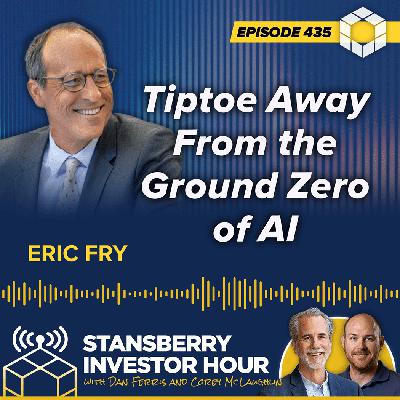
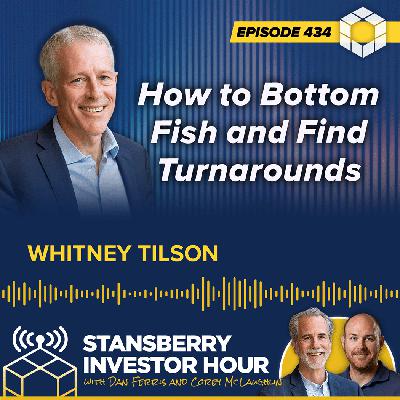
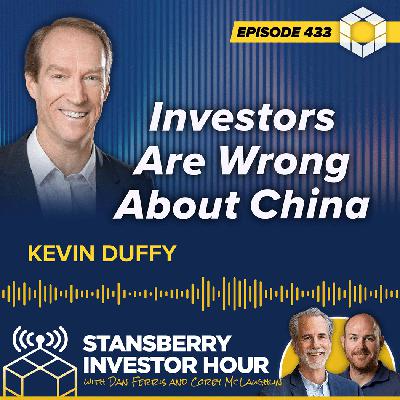

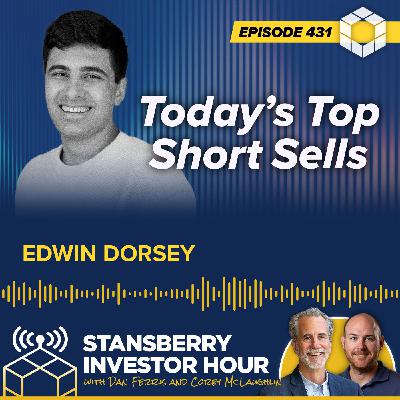
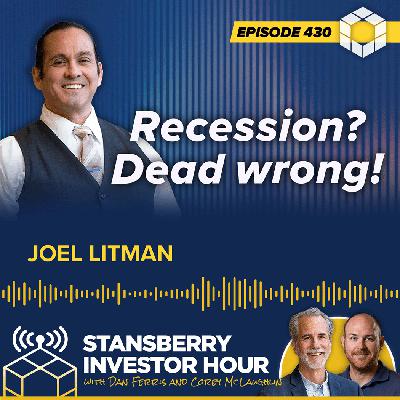
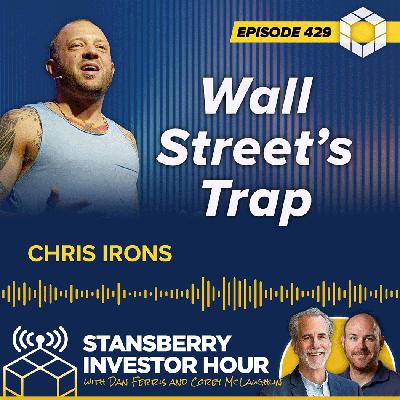
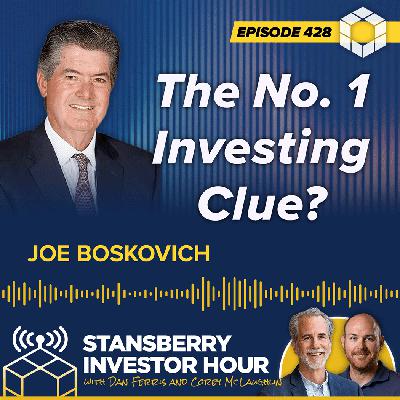
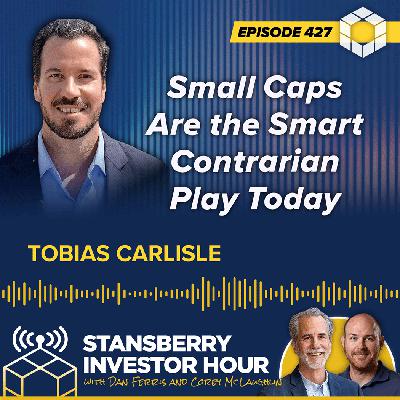

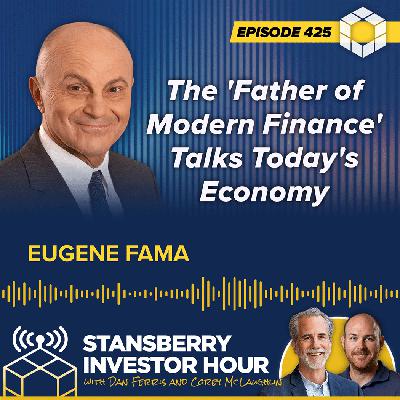
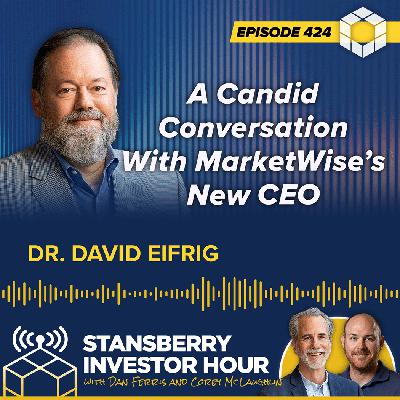
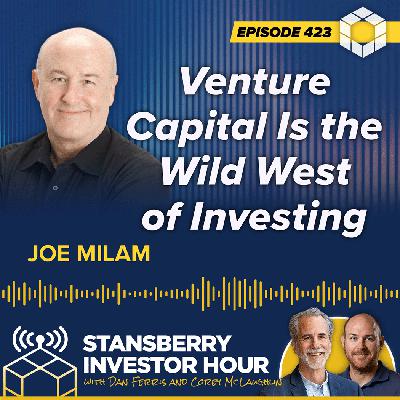
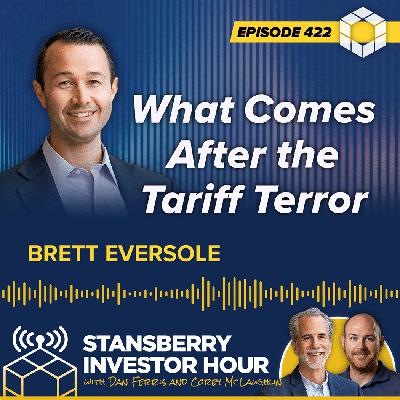
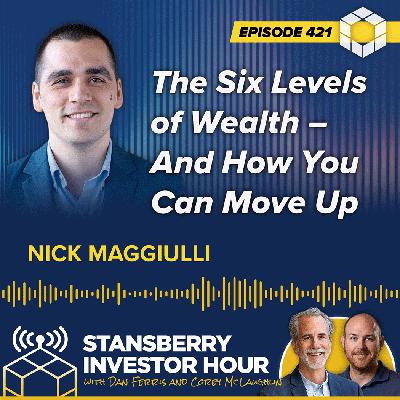
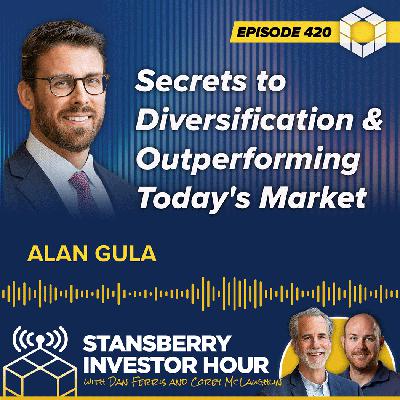
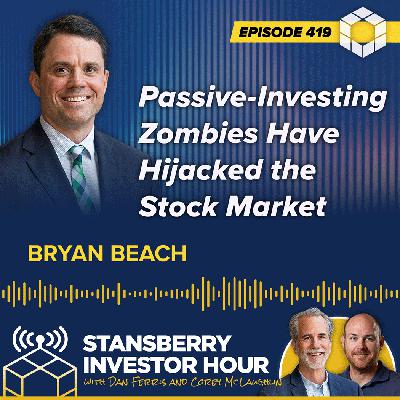
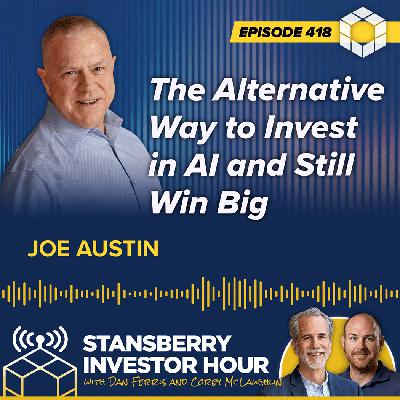



Remind me: Does the president select the Fed Chair or does the Fed Chair select the President?
enough about football
the guess has a very mono-tone voice
micro trends!?! The interviewee sounded like he has invested in 1cSTK companies that has a chance of being somebody/ real company.
This interviewee needs to find Tim Sykes 2 really learned how to trade 1cSTK. #TimSykes #investing #1cSTK #trading #investing
E.Wade has a great way explaining what Crypto is
this interviewee has a Great 👍way to invest w/o learning technical & fundamentals in STK trading
always heard of this style; just didn't know investors actually did this
Very informative! WOW!!! It expanded my Education in Crypto
have to listen to this 1 again.
Rupal gave up huge knowledge/nuggets on investing!!! Very powerful! And also the distinction she made about $APPL
wealthier is healthier - John Stamos
these Robinhood traders are like uninformed voters. They are trading w/ little information or none at all. Thinking they can master trading in amount weeks. As one of my trading Guru says: plan your trade; trade your plan.
From your title of your podcast and your style of trading, yes they are gambling. Once a ticker becomes a Pennystock(1cSTK), OTC, PINK or GREY SHEETS, your strategy changes as a day trader. This is where your past interviewee David Schum is lacking in knowledge. Get a knowledgeable person in the 1cSTK world to explain the strategy. the Hertz, JcP & GE.
another great guest
listening 4 the 2nd time. Rule's line about; Delta over time is where money is made. Most poor people don't have $$$$ to put over time. And usually for that matter not a whole lot time either.
WOW! can you say free free free free free free Free FREE
Not the Terminator's world, but more of a Star Trek way of life. Is what I was hoping.
the interviewee- is WOW!!! can't say much more than that.
why would you want 2B a bag holder. That takes/ uses up your Capital Most of those Co. are crap. It's better to day trade the STK.